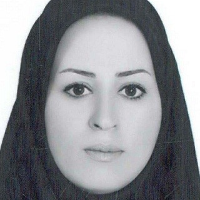The effect of fatique due to plyometric training on activity pattern of rectus femoris muscle in different phases of deep jump on active girl
The aim of this study was to determine the effects of fatigue due to plyometric training on vertical jump ability and activity pattern of rectus femoris of dominant leg of high jump of active girls.
Seventeen females, mean age (21.5 ± 0.76 years) were randomly assigned to two experimental (n = 10) and control (n = 7) groups. Experimental group performed plyometric training and control group had no activity. Before and after training, vertical jump test using Ergo jump and electrical activity of rectus femoris muscle of dominant leg using electromyography were tested. The results of vertical jump test showed a decrease in performance (p: 0.04, F: 4.5) and fatigue process was confirmed. The raw EMG signal based on deep jump phases was divided in three phases and only 2 phases of the first were analyzed. In every phase, the maximum activity, amplitude and total time were obtained. respectively. M ultivariate analysis of variance (2×2) was used to compare of post-test of two groups.
After one session training, rectus femoris maximum activity of the experimental group showed a significant decrease in pre-activation phase of motor program.
This study showed that neural fatigue due to plyometric training can occur in motor program (especially in pre-activation phase of motor program).
-
The Role of COVID-19 Repercussions on Mental Health Issues on University Students
*, Fariborz Ramezani
Journal of Educational and Scholastic Studies, -
The role of olfactory sensory neurons in improving working memory following aerobic exercise training in adult male rats
Farzaneh Zeynali, Mohammad Shariatzadeh Joneydi *, Jalaledin Noroozi, , Mohammad Reza Raoufy
Sport Physiology, -
The role of neurotransmitters (serotonin and dopamine) in central nervous system fatigue during prolonged exercise
, Leila Fasihi *
Journal of New Approaches in Exercise Physiology, Winter and Spring 2023 -
The role of students ‘gender difference on socio-general health and corona-induced anxiety in COVID-19 pandemic
*, Fariborz Ramezani
Medical Journal of Mashhad University of Medical Sciences,



